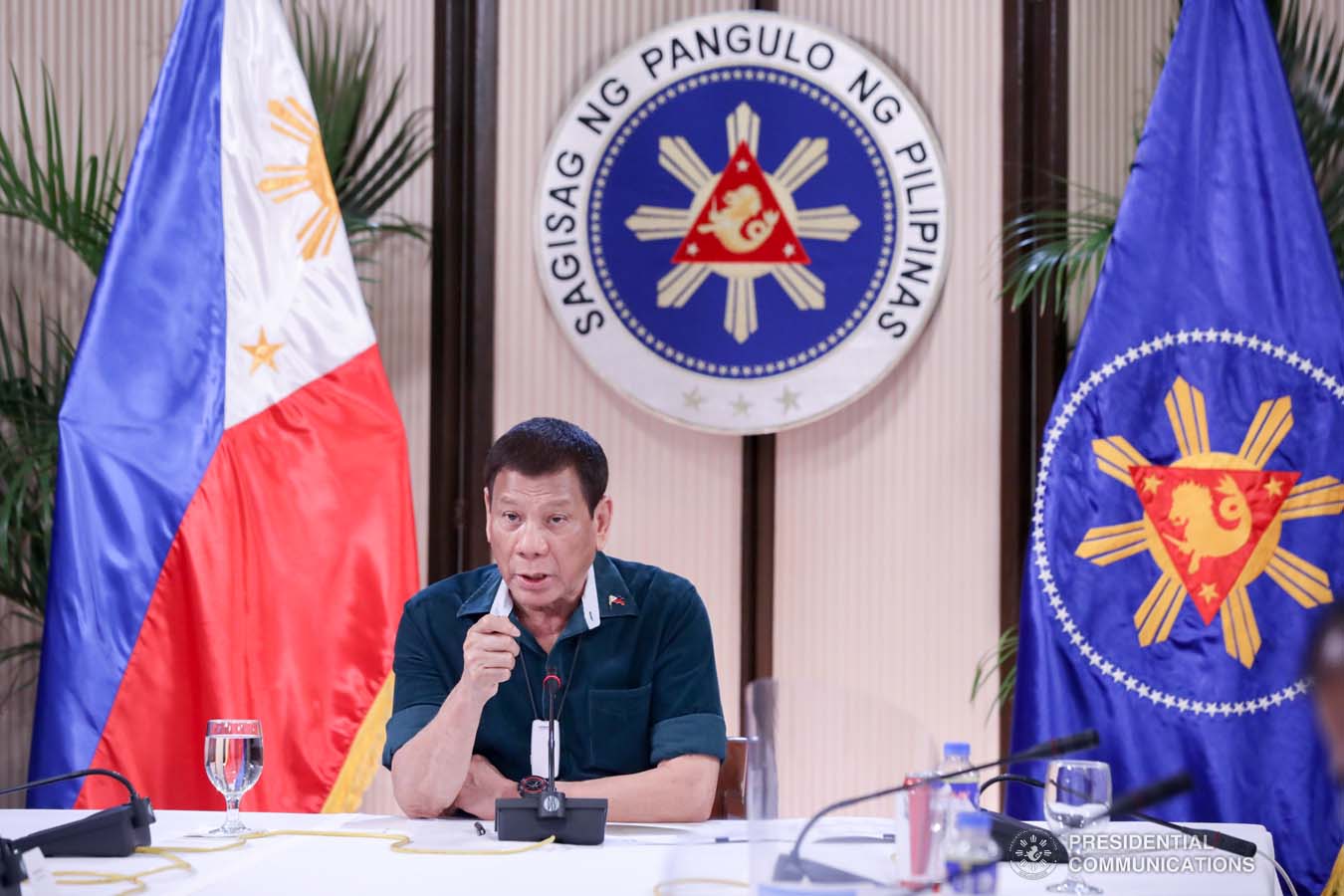Headline
PRRD to ensure anti-terror law complies with Constitution

FILE: President Rodrigo Roa Duterte updates the nation on the government’s efforts in addressing the coronavirus disease (COVID-19) at the Malago Clubhouse in Malacañang on May 4, 2020. TOTO LOZANO/PRESIDENTIAL PHOTO
MANILA – President Rodrigo R. Duterte will thoroughly review the anti-terrorism bill to ensure that it complies with the 1987 Constitution, Malacañang said Thursday.
Presidential Spokesperson Harry Roque made the statement, assuring that the President is in no rush to sign the measure meant to add more teeth to the country’s law against terrorism.
“Bagamat (Even if) it’s certified urgent, ‘di naman po automatic pipirmahan ‘yan ni Presidente (it won’t automatically be signed by the President),” Roque said in a virtual presser from Davao City.
He said the President, who is also a lawyer, would not allow unconstitutional provisions in the proposed law.
“Dadaan pa rin ‘yan sa isang final review para titingnan kung may probisyon na labag sa Saligang Batas bago po pirmahan ng Presidente (It will undergo a final review to see if there are provisions that violate the Constitution before it is signed by the President),” Roque said.
He assured that the anti-terrorism bill would not curtail freedom of speech.
“I think dito sa Pilipinas, hindi mo na talaga masusupil ang karapatan ng malayang pananalita dahil hindi na po papayag ang sambayanang Pilipino (here in the Philippines, you can no longer curtail freedom of expression because the Filipinos will not allow it),” Roque said.
In an interview over Teleradyo on Thursday, he said Filipinos are free to express themselves so long as there is no “clear and present danger.”
He, meanwhile, denied speculations of a looming terrorism threat after the certification of the anti-terrorism bill as urgent was followed by the decision to suspend the termination of the Visiting Forces Agreement (VFA) between the Philippines and the United States (US).
“Wala naman pong relasyon ‘yan (There is no relation between the two),” Roque said.
He noted that Duterte’s decision to certify the anti-terrorism bill as urgent was based on the need to beef up the current Human Security Act, which has done little to quell terrorism in the country.
“Hindi nagwakas ang terorismo nung lumaya ang Marawi. Patuloy ang banta nito sa tahimik na pamumuhay ng mga Pilipino (Terrorism did not end when Marawi was freed. The threat continues to haunt the peaceful lives of Filipinos),” Roque said.
He also pointed out that the anti-terrorism bills were “not passed into law” during the previous Congress.
The anti-terror bill is up for the President’s signature despite claims made by the opposition and progressive groups that it is an attack on freedom of speech or an avenue for red-tagging.
On Wednesday, the House of Representatives approved the measure on its final reading. The Senate passed the bill on final reading in February.
Under the bill, persons who shall threaten to commit terrorism and those who will propose any terroristic acts or incite others to commit terrorism shall suffer imprisonment of 12 years.
Suspected persons can be detained for 14 days without a warrant of arrest with an allowable 10-day extension.
A 60-day surveillance on suspected terrorists can also be conducted by the police or the military, with an allowable 30-day extension.
Videoconferencing for the accused and witnesses will also be allowed under the measure.
To allay fears of abuse, the Commission on Human Rights will be notified in case of the detention of a suspected terrorist.





















